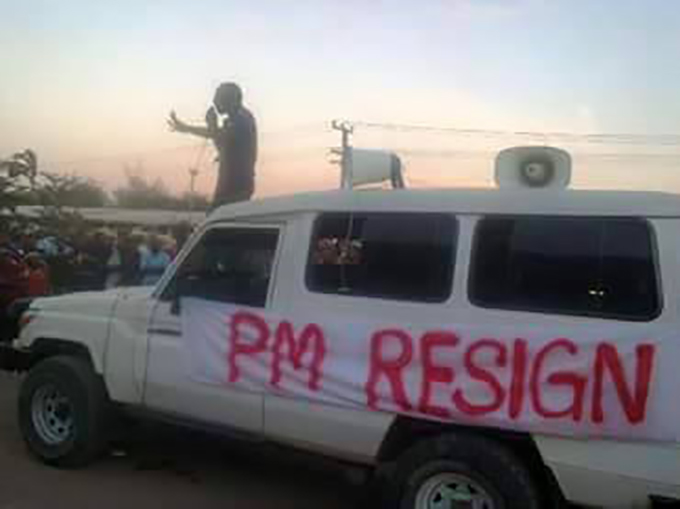
The Media Council of Papua New Guinea has appealed to government institutions and individuals to respect the role of the media and to allow journalists to report without fear or favour.
The concerns coincide with World Press Freedom Day celebrations earlier this week on May 3 and follow local journalists being subjected to “intimidation and threats of harassment” when reporting on issues relating to the arrest of high profile personalities, says the MCPNG in a statement.
Some media were also banned from covering related stories.
The MCPNG, as an example, highlighted recent incidents that bordered on intimidation and harassment of journalists.
April 18, 2016: Members of the Royal Papua New Guinea Constabulary (RPNGC), including a deputy commissioner, shouted at members of the media and told them to leave after they arrived at the National Fraud and Anti-Corruption Directorate (NFACD) premises at Konedobu in the National Capital District (NCD).
April 22, 2016: A journalist from a daily newspaper was called by members of the RPNGC and advised that he would be interrogated over mobile phone text messages that he exchanged with the NFACD director, Chief Superintendent Mathew Damaru.
April 28, 2016: Journalists from the Post-Courier were barred from entering the University of Papua New Guinea (UPNG) in Port Moresby to cover student preparations for an anti government protest calling on Prime Minister Peter O’Neill over corruption and erosion of democracy allegations.
April 30, 2016: Student leaders at the University of Papua New Guinea (UPNG) advised that three media organisations – PNG Post–Courier, The National and the television station EMTV – were banned from entering the campus to cover the student protest and boycott of classes.
Subject to scrutiny
MCPNG president Alexander Rheeney, who is also editor of the Post-Courier, said the incidents pointed to a trend where officials “choose to be discreet in their dealings, despite holding public offices that are and should be subject to scrutiny”.
“Policemen are officers of the law and in the course of dispensing justice should be subject to public scrutiny, including media coverage for the benefit of ordinary Papua New Guineans,” he said.
About the attempted interrogation of the reporter, Rheeney said the act was a worrying development for journalists who swore an oath to protect their sources when writing stories in the public interest.
“The actions of the policemen in attempting to interrogate the reporter concerned are unwarranted. While media organisations do not wish to stand in the way of and respect police investigations, the reporter and his or her employee should be contacted and a meeting arranged in the presence of a third party, preferably a company lawyer,” added Rheeney.
Recent events at UPNG which led to the banning of three media organisations recently also needed to be put in perspective, according to Rheeney.
The ban only put the student movement at a disadvantage as coverage by media organisations would give them a nationwide footprint.
“Including the two daily newspapers in your media strategy can instantly give you close to 100,000 readers on any given day. Throw in the coverage of EMTV and the story gets into the homes of over a million viewers,” Rheeney said.
‘Smart media’ for students
“Students need to be smart in how they use the media, a ban doesn’t help their cause.”
Rheeney said concerns of bias in news coverage should be raised directly with the media organisation concerned, or the MCPNG.
It should be submitted with evidence, if any, to enable the media organisation or the council to consider it on its merits and for action to be taken.
Contact the Media Council of PNG












































